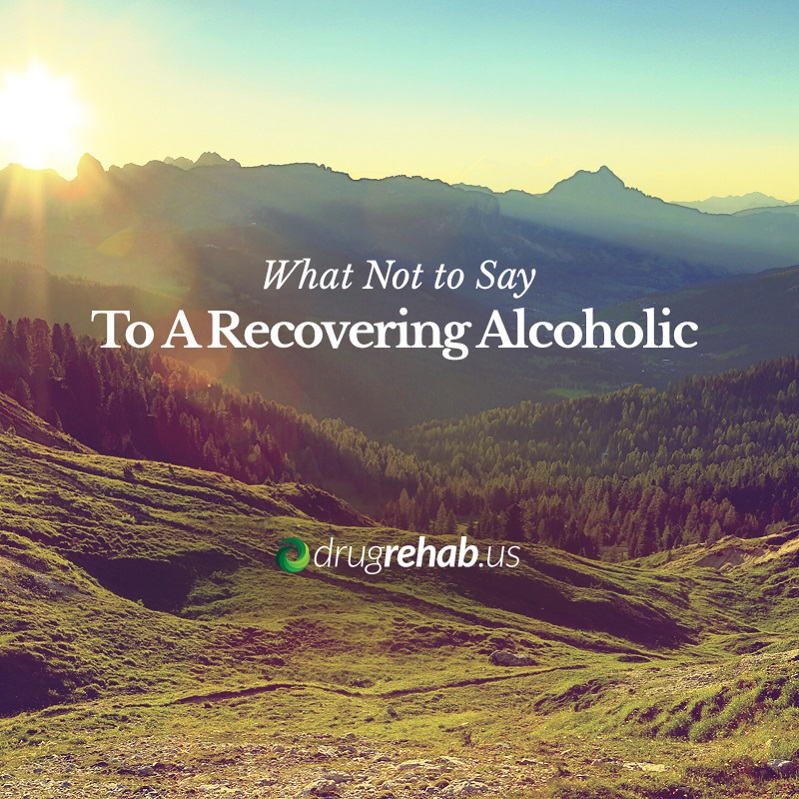11 Dec 2014
Coping With A Chronic Relapser
Helping a loved one overcome addiction is challenging. First you have to convince her that she has a problem, which may seem like an insurmountable obstacle. Once she is ready to admit to her addiction and get help, you have to support her as she goes through rehab. Finally, your loved one is prepared to re-enter the world as a sober person in recovery. And then she relapses, again and again and again. After lending so much support, how do you help the chronic relapser in your life?
Understanding Relapse
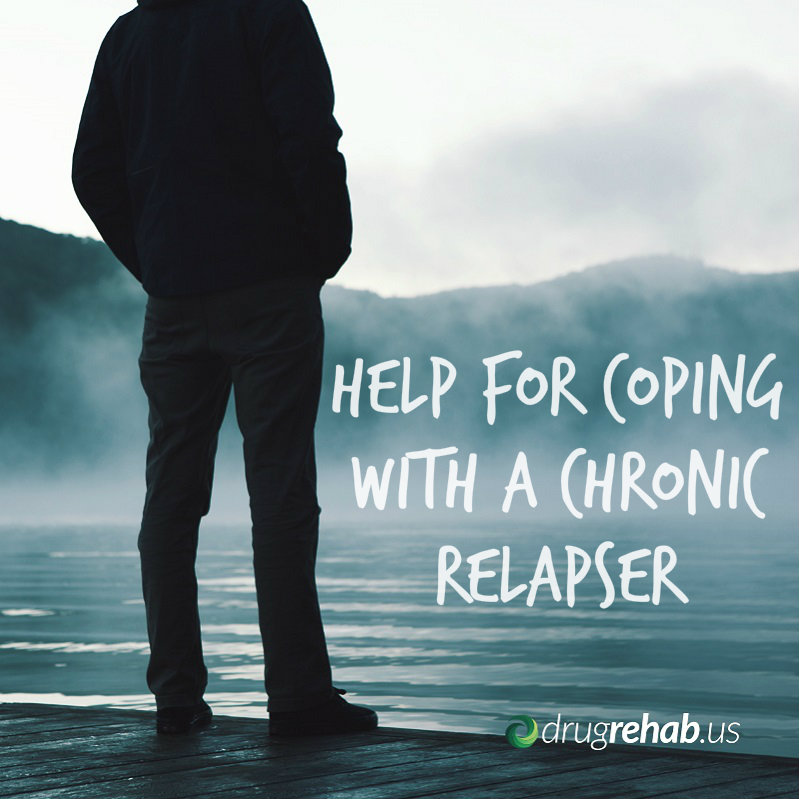 As someone who does not have an addiction or substance abuse problem, it can be difficult to appreciate what your loved one is going through. It may help you to feel better, and to be better able to help her, if you educate yourself about this disease. The old-fashioned idea about addiction is that the addict always has a choice and that if she fails at being sober, she is weak-willed and inferior.
As someone who does not have an addiction or substance abuse problem, it can be difficult to appreciate what your loved one is going through. It may help you to feel better, and to be better able to help her, if you educate yourself about this disease. The old-fashioned idea about addiction is that the addict always has a choice and that if she fails at being sober, she is weak-willed and inferior.
Research over the last couple of decades has changed that long-standing view of addiction. We now know that it is a chronic illness and has much in common with other chronic medical conditions like diabetes or arthritis. The most important characteristic of chronic illnesses that you must understand is relapse. Relapse is common and almost inevitable in all chronic diseases. These illnesses require lifelong treatment, and even then relapse may still occur.
Continuing Support Toward Your Loved One Who Is Relapsing
Knowing more about addiction and its chronic nature may help you to be more compassionate toward your loved one who is relapsing. Even so, it can be frustrating to see her repeatedly go back to substance abuse. You have a choice as to whether you continue to support her or not. Most addiction experts would urge you to continue to be there for her. Many addicts require several tries at rehab and focused treatment before relapses stop or become less frequent.
If you have the means to keep supporting your loved one, do so. She needs you. Help her in any way possible. That may mean helping her to pay for treatment, helping her to find new treatment programs that are more successful for her, or giving her a supportive place to stay after rehab. Just remember to take care of yourself as well. Don’t give more than you can afford to, financially, emotionally or otherwise. And make sure you are not enabling by making excuses for your loved one or providing financial help for their habit.
Walking Away From A Chronic Relapser
Your other option when coping with a chronically relapsing loved one is to walk away and withdraw your support. It seems like a harsh option, but there are some valid reasons to make this choice. If you feel completely drained, worn out or used up from helping her, you may need hiatus. Take a few weeks to heal yourself and tell her that you will support her once again, but that you need a break.
Another reason you may need to walk away, and maybe do so for good, is if your loved one is taking advantage of you and causing you harm. Maybe she is stealing from you. She might be verbally or physically abusive, or perhaps puts you or your children at risk by bringing drugs and dangerous people to your home. How you choose to cope with a loved one who can’t seem to stay sober is personal. Consider your options and make the choice that is best for you and your family. There is only so much one person can give.
Women And Men Have Unique Needs When Coping With Relapse. Check Out These Beneficial Tips To Cope With Relapse As A Woman – You Are Not Alone!
In June of 2014, the Delaware News Journal partnered with Christiana Care to host a forum on the heroin crisis gripping the state, but several questions from audience members were left unanswered. Panelists at the event willing to work with the Delaware News Journal have offered to answer some of these questions in an ongoing feature, and Don Keister, co-founder of the anti-addiction group atTAck and whose son died of heroin addiction in 2012, has stepped forward for the task. The question he answered revolved around what you should do when an adult child who lives with you—and has children of his or her own—is struggling with addiction but won’t get help, and his response offers important advice to anybody suffering similar issues.
The Three Cs For Family Members Of Addicts
Keister offers a core piece of advice from Al-Anon: remember the three Cs.
You didn’t cause it,
you can’t control it
and you can’t cure it.
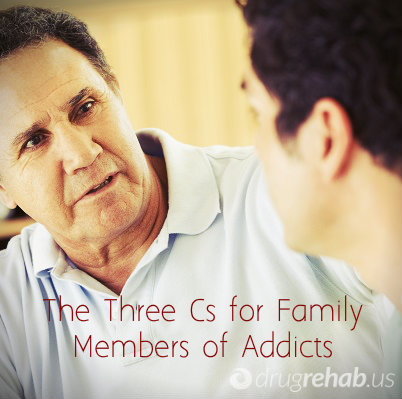 If someone you care about is suffering from addiction, there’s an inclination to try to take too much on your shoulders or even to feel guilt, but this is unhealthy.
If someone you care about is suffering from addiction, there’s an inclination to try to take too much on your shoulders or even to feel guilt, but this is unhealthy.
You’re in no way responsible for what is happening. It’s only natural to want to fix the problem for your child, but addiction isn’t like a scraped knee or a period of minor financial trouble: it’s not something you can rectify for them.
By trying, all you’ll do is make yourself more stressed and unhappy. It may seem puzzling given the situation, but you need to care for yourself as well as your family member.
That’s the real purpose of the three Cs: you need to truly understand that you aren’t to blame, and you can’t heap all the responsibility onto your own shoulders.
No Single Solution To Recovery
Sadly, there isn’t a single road you must follow to recovery. You need to think about what works for you and your family as individuals, but it is important that you’re there to offer support. You need to continue to love your child, and of course the same goes for your grandchildren.
Although you can’t force somebody to get help, you should do whatever you can to support and encourage your son or daughter to go into recovery. Even if your child won’t get help, you shouldn’t blame him or her for the issue either; addiction has many causes and it isn’t productive to become angry with or resentful of somebody struggling with it. Your child always needs to know you’re acting out of love and concern for his well-being.
Addiction As A Family Disease
Keeping all of that in mind, it’s important you recognize that addiction is a disease that affects entire families. The most obvious affected parties are your grandchildren: your son or daughter is unlikely to be capable of offering the level of parental care they need, and this is one area where your support is invaluable.
However, as the three Cs point out, you need to care for yourself too. The challenge is staying as healthy as you can while still being there to help the entire family unit—including the addict—get through this together. This is especially important if you’re all living together, but it makes it all the more difficult to avoid taking too much responsibility yourself.
Importance Of Getting Additional Recovery Support
That’s why getting additional recovery support is essential. Even if the addicted individual won’t get help, groups like Al-Anon exist to offer support to the loved ones of addicts, and can help you get through the problems you’re facing. Addiction isn’t easy for anybody in the family, and if you’re having difficulty, help is available.
Keister’s advice might not have been what you were hoping for, but it’s realistic, and attests to his personal experience with the problem. As much as you may want an easy fix, it doesn’t really exist. Things can and hopefully will get better, but until then, all you can do is be as supportive as possible and make sure you look after yourself, too.
If You Need Help With A Family Member’s Addiction – Call Us Now!
20 Nov 2014
Should You Force Someone Into Rehab?
If you love someone who is struggling with addiction, all you want to do is help her. In an ideal world you would confront her and she would admit that she has a problem. She would thank you for your offer to help and agree to get treatment. Unfortunately, these scenarios rarely play out so well. Addicts are great at denial, lying and making excuses. If you have reached the end of your rope with a loved one, can you, and should you, force her to go to rehab?
 Can You Force Rehab?
Can You Force Rehab?
The first question to ask is whether it is even possible to force a loved one to get treatment. A person can be ordered by the court to receive treatment, but that requires the addict to be in trouble with the law.
There are several states in which family members can petition the court to have a loved one forced into treatment.
In fact, there are only a dozen or so states that do not allow for this. In some states, even a doctor can force a patient into addiction treatment for up to several days at a time.
Pros And Cons Of Forced Rehab
There are both benefits and negative consequences of involuntary rehab.
Benefits Of Involuntary Rehab
If you live in a state in which you can either petition the court or ask your doctor to mandate treatment for an addicted loved one, your next question should be whether this is the best option.
Perhaps the most important benefit of being able to force someone to get care is that it can save a life. Certain states have passed laws allowing for forced rehab because of tragic deaths. In Kentucky, for instance, Casey’s Law passed after a young man died from a heroin overdose. His mother pushed for the new law because she felt there were too few resources.
Involuntary rehab might also be positive for those addicts who end up benefiting from the treatment. Since Ohio passed its law two years ago allowing families to force relatives into rehab, only one case has been taken. The woman in question actually continued her treatment beyond the court-ordered period.
If other addicts are forced to seek care, they may realize that the treatment is helpful and that they want to continue and get better. Research has found that coerced treatment, at least through the court system, can be effective.
Negative Consequences Of Forced Rehab
For many families, coerced rehab may seem like the only option. You see your loved one unraveling in front of you and feel helpless. She refuses to get help, yet she is on a collision course with disaster.
Are there any downsides to forcing her into rehab if that is an option? Research tells us that intrinsically motivated addicts will be most successful in rehab. If you have to force your loved one to get help, her odds of success are automatically lowered.
The truth is that the best chance of a successful recovery comes from voluntary care with experts who use effective, evidence-based methods for treatment. If you have an addicted loved one, do everything you can to lovingly support her and convince her that she needs help.
Enlist the assistance of a professional interventionist if your efforts fail. Then, find a treatment facility that has an excellent reputation for caring for vulnerable addicts and that uses treatments based on research. These things together will be the best help your loved one can get.
Get The Know How On Finding The Right Treatment Facility For Your Loved One!
When you are guiding a loved one through the process of getting help for alcohol abuse, it can be easy to feel overwhelmed. You want the best for the person you care about, but there are so many choices. How do you know which facility and which type of program is right and will be most effective? The first step is to understand what the options are. Then you can make an informed and personal decision about seeking care.
Alcohol Treatment Options – How To Choose The Right Alcohol Treatment Program
When it comes to care for alcoholism and alcohol abuse, there is no one-size-fits-all option. Addiction care is personal and most effective when it is individualized to meet the particular needs of each patient.
Your loved one needs the type of care that will work best for him. These are some of the options:
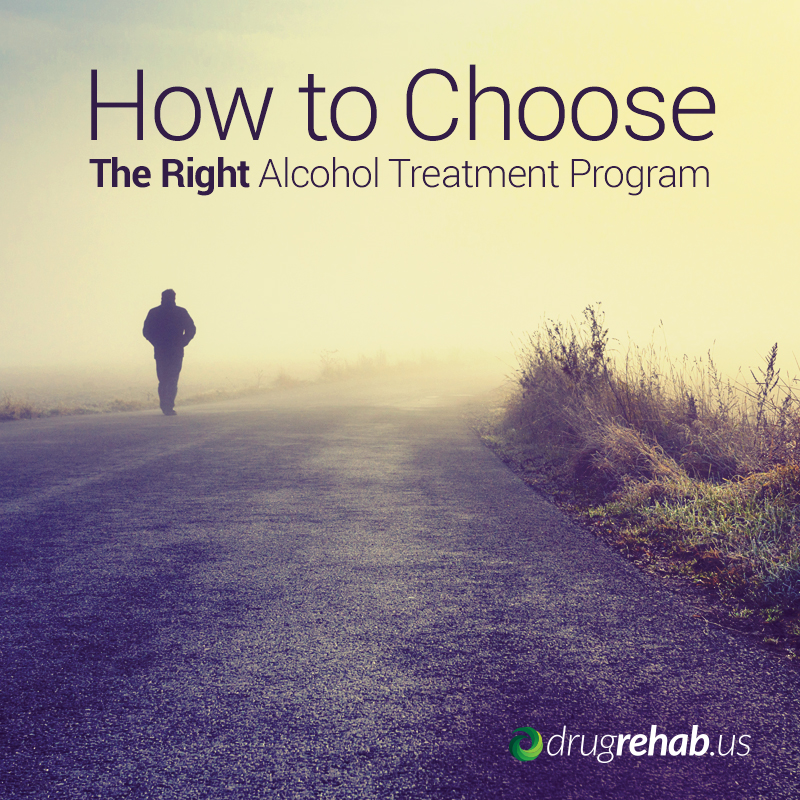 Outpatient counseling – Counseling is useful for anyone who abuses alcohol. On an outpatient basis, it allows the patient to stay at home and to continue going to work or school. This may not be the best option for someone who is a serious alcoholic. Counseling may include group therapy, family therapy or one-on-one counseling.
Outpatient counseling – Counseling is useful for anyone who abuses alcohol. On an outpatient basis, it allows the patient to stay at home and to continue going to work or school. This may not be the best option for someone who is a serious alcoholic. Counseling may include group therapy, family therapy or one-on-one counseling.
- Intensive outpatient program – An intensive program can allow the patient to stay at home, but still receive intense care. This requires a big time commitment, but is good for someone who needs extra support and feels most comfortable staying at home with family.
- Inpatient or residential care – Residential care means staying in a facility for a month or more. This allows the patient to receive intensive, daily care and 24-hour monitoring.
- Sober living – A sober living facility is similar to residential treatment, and may include intensive therapy and treatment. It is often used as a facility for someone who has completed residential care, but is worried about going home. It involves living in a house with other alcoholics in recovery and there are strong social and support components.
- Support group – A support group is a meeting of people trying to cut back on drinking or stay sober after going through treatment. Many are anonymous and follow a 12-step philosophy. These groups can be used as a stand-alone treatment or as ongoing treatment for alcoholics already in recovery.
Making The Right Treatment Choice
Now that you know more about the options for alcohol addiction and abuse treatment programs you can help your loved one make a good decision. Think about his needs and his personality and which type of program would suit him best. If he has a strong support system at home, maybe outpatient care would be best. If he can’t be trusted to not keep drinking, a residential facility might help. If he is not yet an alcoholic, but is engaging in dangerous drinking habits, individual therapy or attendance at a support group may be enough to help him make some important life changes.
As you pick out a facility together, make sure you keep a couple of other factors in mind. Look for a program that has good credentials and a well-trained and experienced staff. You should be able to get positive references from any reputable program. Also look for a facility or therapist that will tailor a program to meet the individual needs of your loved one. A rigid plan used for everyone is not going to be effective. If you keep these things in mind and are careful in your selection process, you should be able to find a treatment program that will help your loved one get sober and learn to stay alcohol-free.
Christian Or Secular Drug Rehab – Which Is Right For You? – Let Us Help You Make This Important Decision
06 Nov 2014
What Not To Say To A Recovering Alcoholic
One of the most important factors for a recovering alcoholic in staying sober is the support of friends and family. Developing a strong support network of caring people is crucial to helping a recovering alcoholic. Even when she feels strong in recovery, know that there will be moments of weakness. These are the times when she should be able to lean on you and other supportive friends. With that in mind, understand how important your role is and be sensitive to your friend’s needs. Think before you speak and avoid saying something that will hurt her feelings or her recovery.
Be Careful To Not Say These Things To A Recovering Alcoholic
You’re Not Really An Alcoholic
Nothing could be more insensitive than belittling your friend’s struggles. Whether or not your friend describes herself an alcoholic is not up to you to decide. Even if you were along for the ride, you have no idea what her battle is really like. Only she can know that. Also understand that alcoholics in recovery are still alcoholics. The disease of addiction is one that is lifelong. Your friend will always struggle to resist the urge to drink. Don’t downplay that struggle.
I Feel So Bad For You That You Can Never Drink Again
Pity is the last thing a recovering alcoholic needs. She also doesn’t need to be reminded of the fact that she can’t drink anymore, possibly ever. What she does need is your support in being sober. This doesn’t mean you can’t drink anymore. It does mean that you can play up the other great things you can do in life without drinking. Instead of feeling sorry for her, get her to join you for non-drinking activities. Work out together. Hang out in coffee shops. Become volunteers together for a cause that is important to both of you. Help her embrace a sober life and see how great it can be without alcohol.
You Just Need More Willpower
Nothing is more offensive to a recovering addict than a discussion of willpower. If you don’t understand the disease of addiction, read up on it. Being addicted is about much, much more than simple willpower. Addiction is not a failing in your friend; it is a medical condition. She required treatment and support to stop drinking. Willpower alone cannot help any addict. Thinking that it can is an insult to your friend and her struggles.
Let’s Meet At That Bar We Used To Like
Your friend in recovery may be strong and firm in her sobriety, but you should never assume that she is OK with meeting up in a bar. It is especially insensitive to suggest a bar in which she used to drink. Addicts need to avoid triggers in order to resist the urge to relapse. She may be comfortable being around alcohol, or even other people who are drinking, but let her bring up that fact. Never make that assumption for her. She may go along just to prove her strong sobriety, but it could end up being a mistake. Instead, suggest that you hang out at home, at a café or coffee shop, a park or anywhere else but a bar.
Being a friend to a recovering alcoholic is not always easy. Some days it may feel like walking through a minefield. If you are sensitive to your friend and her needs and you think about what you say before it comes out of your mouth, you can be the good, supportive friend that she really needs.
The ways in which addiction impacts families are numerous. If you have been struggling because someone you love is battling the disease of addiction, you need help. The addict is not the only one affected by addiction and is not the only person who needs support to heal.
You may need to attend therapy on a one-on-one basis. You might consider attending sessions with the addict you love. But you should also consider joining a support group. The mutual support of other people who have been through the same struggle can be a powerful tool to help you heal.
How Addiction Impacts Everyone
When someone is battling addiction, he tends to think only of himself. True, he is going through an epic battle that could take his life, but the addict is not the only one to suffer. Addiction is a disease of the whole family. It causes stress and tension in the home and affects the stability of the family unit as well as the well-being—physical, mental and emotional—of each individual in it. It doesn’t matter if the addict is a child or a parent: everyone suffers.
Coping With An Addict In The Family
 Experts agree that there are certain steps you should take if you have an addict in your family. First you need to educate yourself. Learn about addiction, what it is, what it means for the addict, and what it means for you. Education is power and is needed if you are to cope with this issue. Resist the urge to enable the addict in your life.
Experts agree that there are certain steps you should take if you have an addict in your family. First you need to educate yourself. Learn about addiction, what it is, what it means for the addict, and what it means for you. Education is power and is needed if you are to cope with this issue. Resist the urge to enable the addict in your life.
This seems obvious, but enabling can be subtle and you may not even realize you do it. Financial support, making excuses, taking over responsibilities are all ways in which you enable the disease of addiction. Finally, it is crucial that you help yourself through this process and a big part of that is getting support.
Joining A Support Group
You care about the addict in your life and you want to help him, but you can only do so much and you have to take care of yourself as well. Don’t deny or belittle the negative impact that addiction is having on your life. Acknowledge it and ask for support. Loving an addict can mean emotional, mental and physical distress. You can’t bear this alone, which is why support groups have been meeting for decades to help people like you.
Support groups for families of addicts are available nearly everywhere. If you live somewhere remote or have no transportation, you can at least find an online group to join. The benefits of joining one of these groups are huge. Simply being there to listen to the stories of others has a big psychological impact. Knowing that you are not alone in your struggles and that other people understand you will be a great comfort.
Be sure to attend sessions regularly to get the most benefit. It is also important to participate. If you are uncomfortable sharing at first, take your time. Go to a few sessions and just listen. The other members will understand that you don’t want to share right away. As you get to know how the group works and become familiar with the members, you will start to feel more comfortable. Push yourself to share. Talking about your own struggles will help both you and others. When you open up you begin to heal and when you begin to heal you will be better able to help the addict you love.
You And Your Addicted Loved One Are Worth It – Call Us Now For Recovery Help
04 Nov 2014
The Danger Of Addiction Stigma
Addiction is one of the most stigmatized diseases there is. Stigma refers to a sense of disgrace or shame attached to an action, behavior or situation. Many people still view addiction as a choice or evidence of weak moral character, and therefore as something shameful. Even as research and scientific evidence point to the medical characteristics of addiction and the chemical brain changes that occur in addicts, we still stigmatize addiction. If you or someone you know has battled addiction you know how overwhelming that stigma can be. It can also be dangerous and it needs to be shattered.
Stigma Prevents Addicts From Getting Help
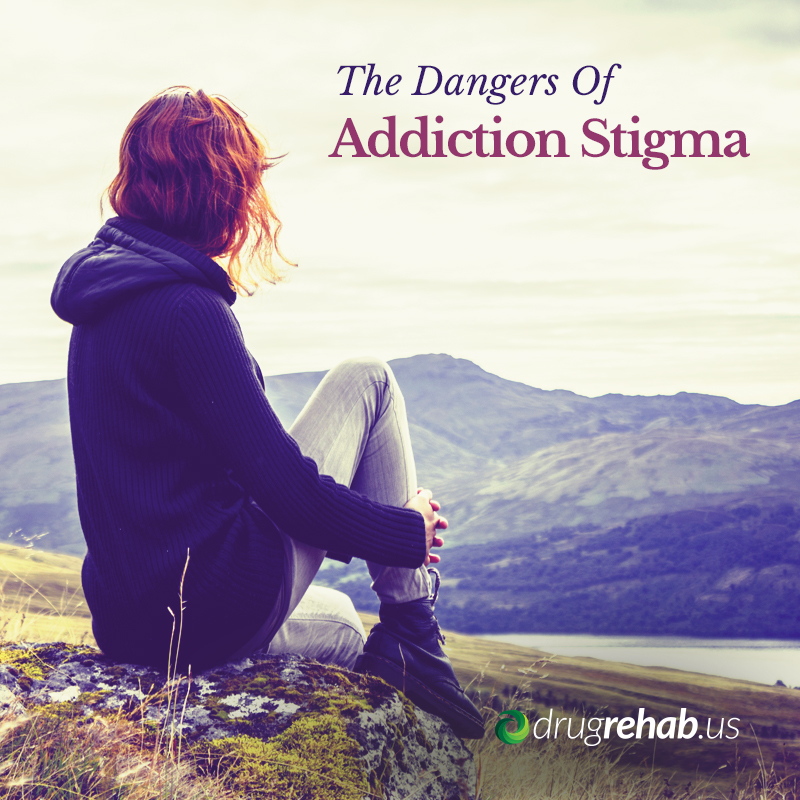 Perhaps one of the biggest dangers of stigma is that it keeps addicts from getting the professional help they so desperately need. When society at large views addiction as a moral failing rather than a medical illness, it makes sense that addicts would not want to admit to having a problem with substance abuse.
Perhaps one of the biggest dangers of stigma is that it keeps addicts from getting the professional help they so desperately need. When society at large views addiction as a moral failing rather than a medical illness, it makes sense that addicts would not want to admit to having a problem with substance abuse.
Why admit to something that would make everyone around you think less of you? It hurts to think of being treated that way, but it happens. And for this reason, many addicts deny their problem, hide their habit and refuse to get life-saving help, sometimes until it is too late.
Addiction Treatment Lags Behind Modern Medicine
Another danger of the stigma of addiction sits squarely in the world of medicine and the way in which the disease is treated. In spite of new research that shows the truth about addiction and which keeps growing in scope, treatment lags behind. We now know that addiction is a disease of the brain and should be treated as such. And yet, the majority of addicts in treatment are not getting care that is based on evidence and research. Just a small portion of addicts gets treatment that reflects what we know about addiction. Only when stigma shifts will treatment begin to change.
Addicts Are Going To Jail
The stigma of addiction is also entrenched in the justice system. Many addicts end up in jail for minor drug crimes, such as possession, when they really belong in treatment facilities. Most of the crimes committed by addicts are in the pursuit of drugs; in other words, their actions are a part of the disease. Sending an addict to jail for possession is almost akin to jailing someone with cavities for eating sugary foods or an obese person for having junk food. The latter two may sound ridiculous, but if we remove the stigma from addiction and view it as a disease, sending an addict to jail for having heroin would also sound outrageous.
Shattering Stigma
Stigma is dangerous. It prevents addicts from getting treatment, subjects addicts to sub-standard and ineffective treatment, and puts addicts in jail. If the incidence of addiction is to be reduced, we need to reduce stigma. If you or someone you know is an addict, it’s time to speak out and get help. We can work to end stigma by refusing to be quiet or complacent about addiction. Don’t deny the problem. Actively seek help and evidence-based treatment. Talk about your addiction and make sure people listen.
There is nothing shameful about having a disease and it’s time that everyone recognizes that fact. Stigma is killing addicts and that is the real shame when it comes to addiction. Change is coming, as evidenced by work of researchers and advocates for addicts, and it can’t come soon enough.
Time To Get Started And Take Action – Take That First Step To Addiction Recovery – Call Us Now!
Now that you are an adult and your parents are older, it may become your responsibility to care of them. Even if they don’t need round-the-clock care, it is important that you make sure your parents are happy and healthy and living well.
Part of that means watching for signs of drug abuse and protecting them from the risk of getting hooked on drugs.
It may seem like a worry you should never have to consider, but the truth is that drug abuse among older Americans is on the rise. Here’s how you can protect your parents.
Protecting Your Parents From Addiction
Get Educated
 To protect parents from the dangers of substance abuse, it’s important that you understand the issue. Educate yourself about senior substance abuse and addiction so you are aware of the risks and the signs. Although it’s surprising, substance abuse among seniors is not that unusual. In fact, it is a growing phenomenon. Estimates show that by 2020, the number of older Americans needing treatment for a substance use disorder will have doubled. Just a few years ago, nearly five percent of adults over 50 were abusing drugs or alcohol.
To protect parents from the dangers of substance abuse, it’s important that you understand the issue. Educate yourself about senior substance abuse and addiction so you are aware of the risks and the signs. Although it’s surprising, substance abuse among seniors is not that unusual. In fact, it is a growing phenomenon. Estimates show that by 2020, the number of older Americans needing treatment for a substance use disorder will have doubled. Just a few years ago, nearly five percent of adults over 50 were abusing drugs or alcohol.
There are several reasons older Americans are susceptible to substance abuse. One is access to prescriptions. Nearly one-third of prescriptions in the U.S. are written to people over 50. Becoming dependent on habit-forming prescriptions is more likely the more they are prescribed. Seniors are also more likely than younger people to experience certain social factors that may contribute to substance abuse: social isolation, a feeling of uselessness after retirement, the loss of a spouse, and depression.
Talk About Drug Abuse
Armed with the facts, start a discussion with your parents. It may be awkward or uncomfortable at first, but knowledge is power. If you can make your parents understand how risky it can be to abuse their prescriptions or to drink too much, they will likely make better decisions. They may also be unaware just how their emotional health impacts the choices they make regarding substances. Encourage your parents to get involved in social activities and to talk to you if they are feeling lonely, depressed or sad.
Help Manage Prescriptions
Abuse of prescriptions by seniors is often unintentional. Many get hooked simply because they need a drug, like a painkiller, to feel better and then use of it spirals out of control. With many different prescriptions, which is common with seniors, it can get confusing. Your parents may end up making mistakes with doses and combinations. Go to appointments with your parents and take careful notes about medications, dosages and interactions. Help your parents organize medications and monitor their drugs to be sure they are taking them correctly.
Monitor Behaviors And Get Help
Drug abuse has telltale signs, no matter the age of the user. Spend time with your elderly parents and watch for changes in health or behaviors that trouble you. Drug or alcohol abuse can cause changes in sleeping habits or appetite, irritability or anxiousness, confusion, and an increased number of falls. You know your parents, and if anything changes that makes you uncomfortable, be suspicious.
If you do suspect substance abuse in a parent, don’t hesitate to get help. Treatment options are available and seniors are more open to them than you might think. The good news is that statistics show that patients over 50 are the most successful when it comes to getting addiction treatment. Be there for your parents, guide them, educate them and help them when they need it so that you will have many more years to enjoy spending time together.
Get The Know-How On Why Substance Abuse Is Rising Among Seniors


